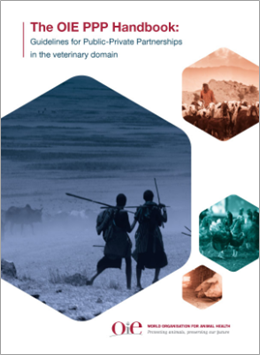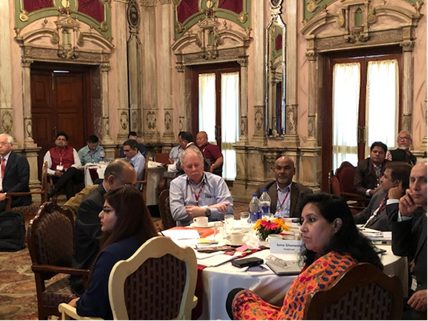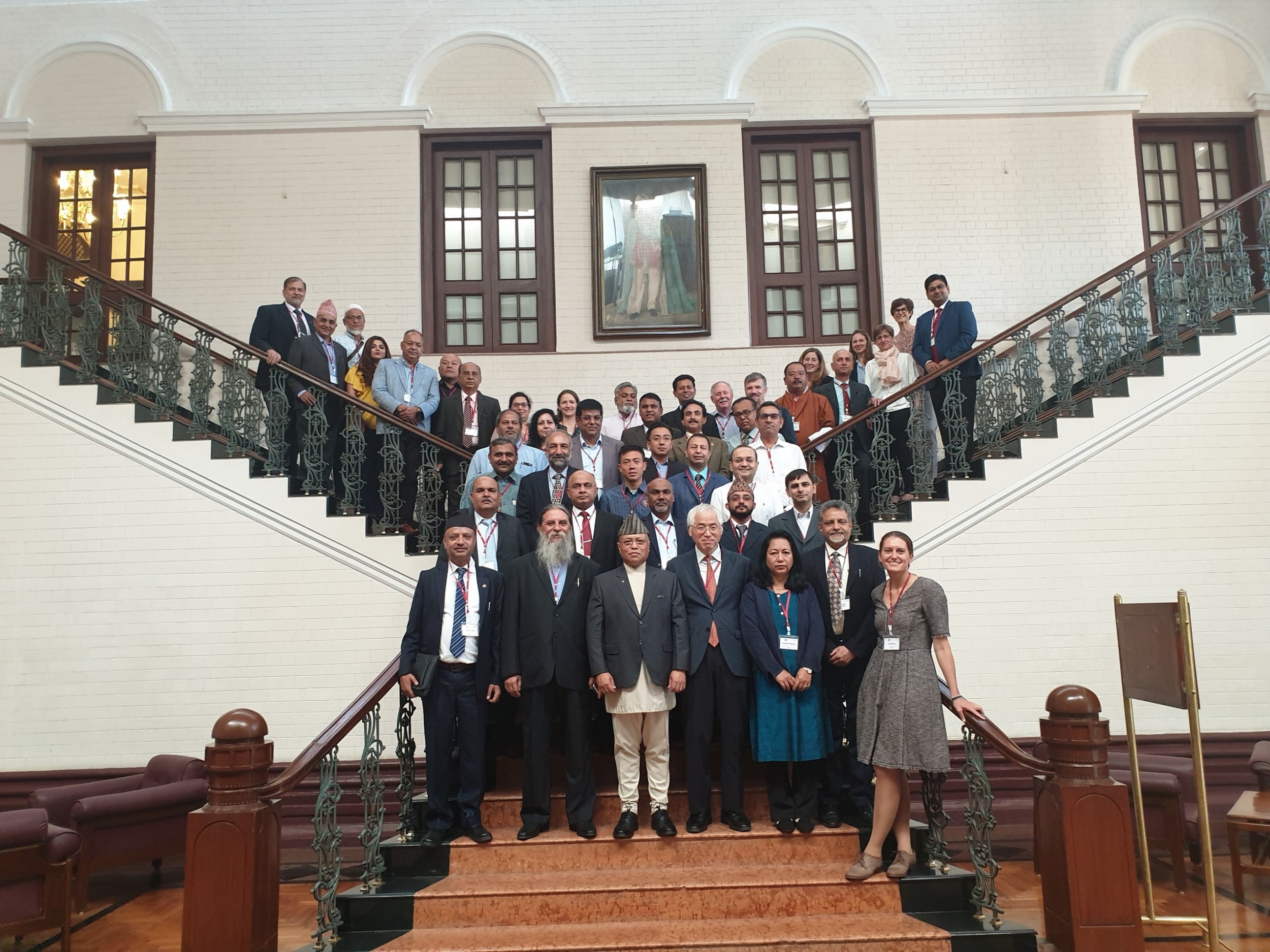
The Public Private Progress initiative, conducted by the OIE with the support of the Bill & Melinda Gates Foundation (BMGF) and in collaboration with the French agricultural research institute CIRAD, which commenced in 2016, aims to encourage the development of Public-Private Partnerships (PPPs) in the veterinary domain, in particular to strengthen the capacities of national Veterinary Services. This initiative, following extensive consultation, led to the publication of OIE guidelines, the OIE PPP Handbook, which was released at the 87th OIE General Session in May 2019.
Subsequently, the OIE has now taken steps to disseminate best practices to support OIE Member Countries in developing successful and sustainable PPPs to strengthen Veterinary Services locally.
The first OIE PPP regional workshop – for a selection of English-speaking African countries – had taken place in Addis Ababa, Ethiopia on 21 and 22 August 2019, while the second edition took place in Tunis on 11 and 12 September, for French-speaking African countries.
The third OIE PPP regional workshop was recently held in Kathmandu, Nepal, attended by a total of 45 participants, experts and facilitators
Invited Member Countries were Afghanistan, Bangladesh, Bhutan, lndia, Pakistan, Sri Lanka and the host country, Nepal. Each member country was represented by two officials from the public Veterinary Services, two representatives of the private sector and one representative of the national Veterinary Statutory Body (veterinary board or council) or veterinary association.
Each participant was invited to complete an online introductory course on the typology of PPPs and their key success factors, developed with the technical assistance of EuFMD (FAO).
The workshop was designed in order to illustrate how PPPs can benefit both public and private stakeholders in the conduct of their respective missions in the veterinary domain, providing the basis for efficient advocacy. It presented best practices on how to develop a PPP, using specific regional examples of PPPs and the guidelines presented in the OIE PPP Handbook. Most importantly, it provided ample opportunity for discussing and experimenting the necessary steps required to achieve the desired outcome.
The workshop was facilitated by OIE staff and representatives of existing PPP initiatives in Asia, along with experts from CIRAD and FAO.
There is great potential for improved animal health and welfare policy development and the implementation of services in the veterinary domain through PPP. Whilst Governments remain responsible for the policies that they adopt, fully involving relevant private sector stakeholders to provide evidence and share in the design of policy proposals can lead to better policies. Both public and private organisations deliver services in the veterinary domain and the OIE defines Veterinary Services to comprise all the activities of both the public and private sectors. However, from country to country the relative involvement of each of the two sectors varies considerably and coordination between public and private actors is often limited. The establishment of PPPs contributes to a more efficient and effective use of both public and private sector resources, i.e. to find synergies through an active and structured collaboration. PPPs also help to improve access to services whilst balancing the development and geographical presence and influence of each sector over the country.


